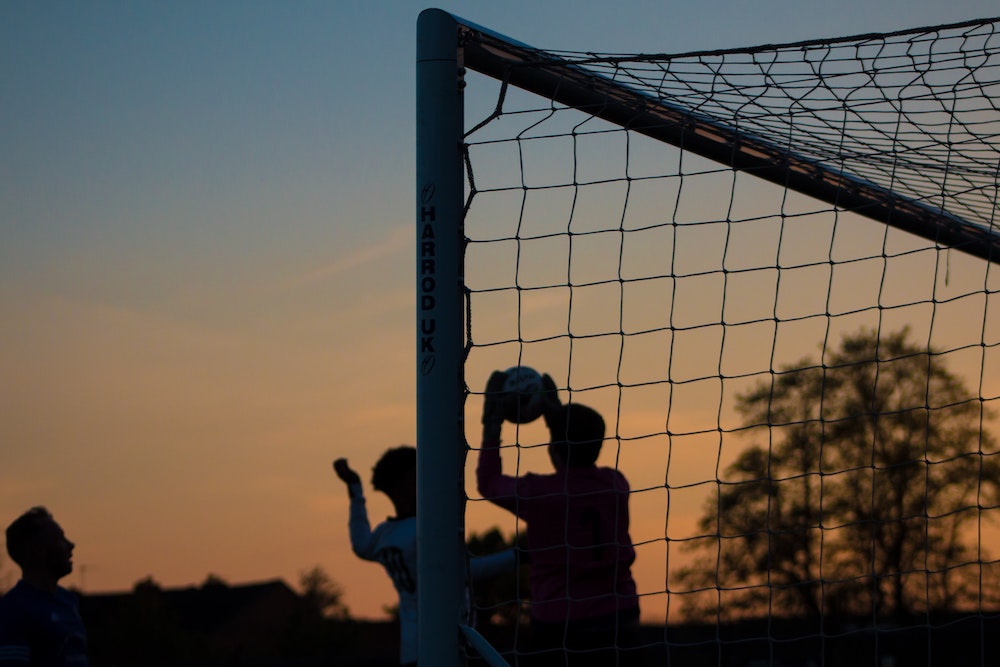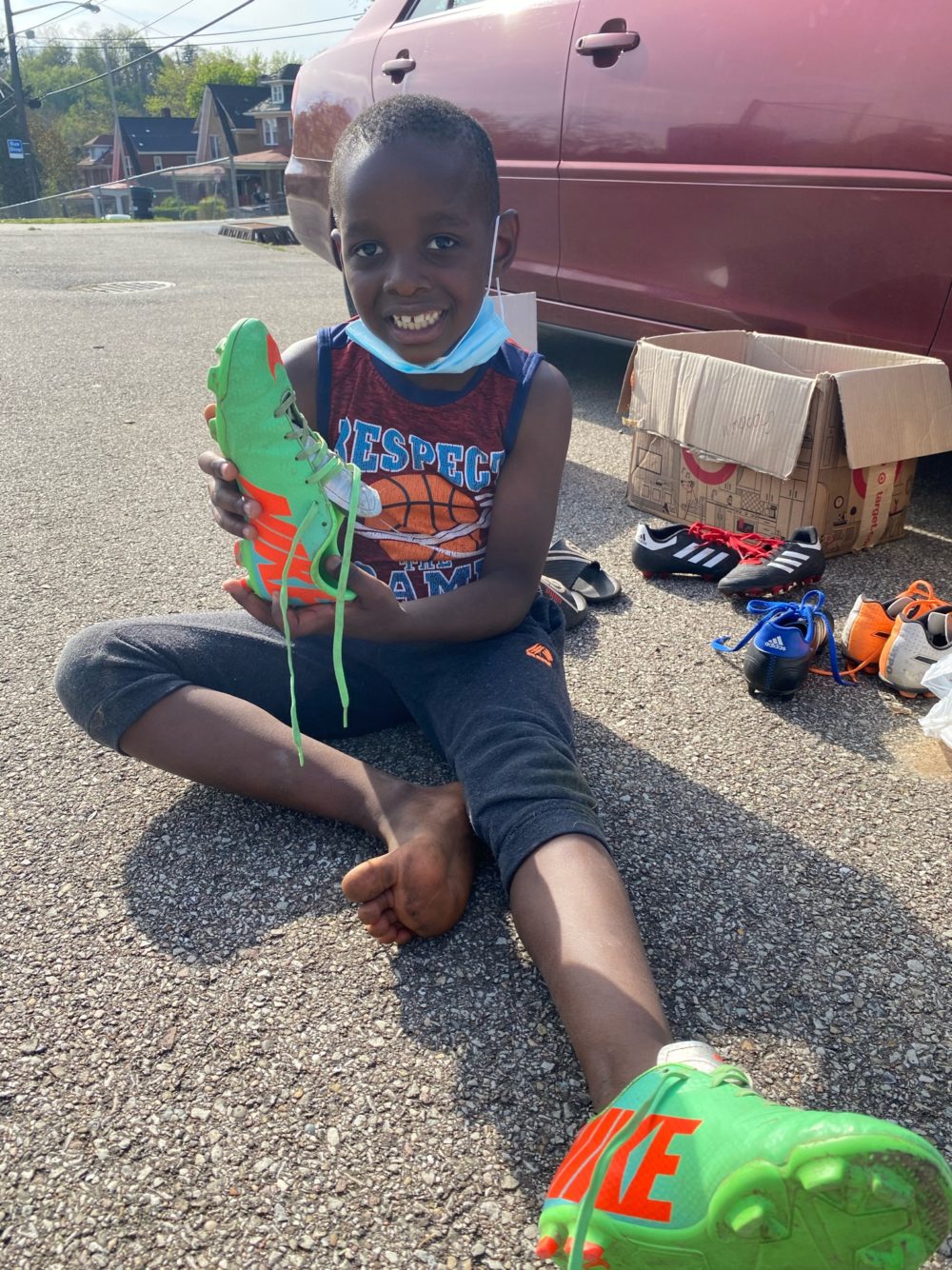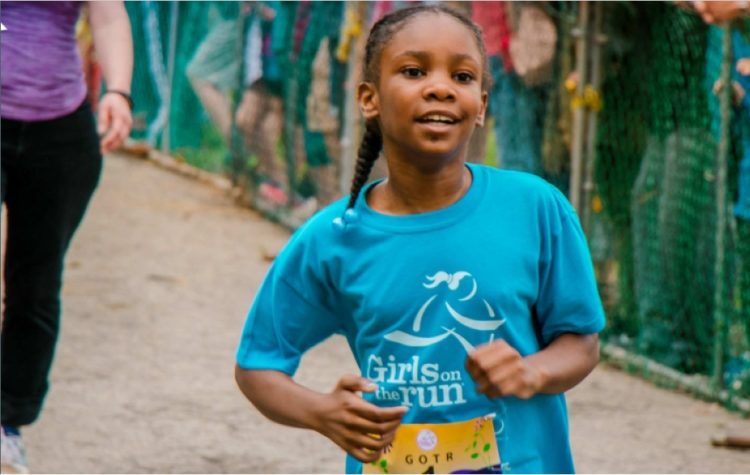
These 3 local organizations use sports to help kids build social-emotional skills
Photo above by David Clarke used by permission via Unsplash.
Here in the City of Champions, sports are a big deal. We see trophies and victory parades. And along the way, we see that playing a sport requires discipline, dedication and teamwork — skills that are useful on and off the field. That’s why several local nonprofits are using sports to mentor and help kids build social-emotional skills.
As Kidsburgh kicks off a month of stories about mentoring, we wanted to share details about three programs that are rocking this work. Here we go!

Open Field
Fifteen years ago, Justin Forzano traveled to Cameroon, Africa. When the young engineering student wasn’t working on rural development projects, he was playing soccer, a game he’d learned to love while growing up in West Virginia.
“Sports gave me friends, something positive to do with my time and skills like time management,” he says. “Soccer is the ‘world’s game’. It’s the most popular sport across the globe. Anywhere else in the world, it’s one of the most accessible sports – all you need is a ball.”
Forzano teamed up with Cameroonian Peter Ngwane to implement youth soccer camps, after-school programs and an international team exchange in Africa and Pittsburgh.
Open Field programming is for youth ages 6 to 18. Everyone is welcome and there’s no cost to attend. In addition to playing, high school student-athletes help lead programs as assistant coach-mentors.
In 2021, more than 500 young people participated in the programs across seven sites in Allegheny County. About 125 more children are involved in year-round, community-based programs in the North Side, West End and Mooncrest.
There are seven local staff members on the ground who oversee operations in Africa, where Open Field runs 12 community-based leagues across two cities.
Locally, Open Field partners with Frick Park Tennis Association to run soccer/tennis camps and they work with refugee-serving organizations such as the Alliance for Refugee Youth Support and Education (ARYSE) and South Hills Interfaith Movement (SHIM).
Forzano says many kids in Open Field programs arrived in the United States within the past three years from places such as Tanzania, Uganda and Kenya. Many of the boys have played in the refugee camps where they lived before, and some recently for their high schools. But beyond that, have never been involved in organized sports. All 16 girls currently on Open Field’s team are playing organized soccer for the first time ever.
As these students adapt to their new hometown, the program can help build social-emotional skills and a sense of belonging.
“We connect with kids who are left out, and their affinity for soccer is what draws them to us,” Forzano says. “Then they get to benefit from so many other things.”

Girls on the Run
Girls on the Run, a program of Magee Women’s Hospital of Pittsburgh, helps young women build social, emotional and physical skills while encouraging good health habits for life. The organization does this through an experience-based curriculum that creatively integrates running. Kids are building their capacity to run while building social-emotional skills like endurance, commitment and patience.
Meredith Colaizzi has been the program manager and council director for nearly two decades. In that time, she’s met a lot of kids. There are about 1,700 participants each year from grades 3 to 5 and 6 to 8. They get involved through their school or a local community center that offers and promotes the program.
Even in pandemic-stunted 2021, 918 children joined a mix of in-person and virtual events. They learned, among other things, about journaling to track their progress and feelings. At the end of the fall season, parents reported seeing noticeable differences in their daughters, ranging from increased confidence levels and better communication to having new friends and a newfound interest in pounding the pavement.
Mt. Lebanon Soccer Association TOPSoccer
Since 1996, Mt. Lebanon Soccer Association has been making sure children with special needs get meaningful playing time.
MLSA is a sponsor of TOPSoccer, a U.S. Youth Soccer co-ed outreach program for kids with disabilities ranging from Down syndrome and autism to cerebral palsy and spina bifida. There are branches all over the country.
Bonnie Doran, a nurse and the mother of MLSA players, brought the program to the South Hills.
Participants are paired with a volunteer buddy and play is adapted to meet their physical needs. Pairs can set their own pace when it comes to drills. Scrimmages are short and played on a smaller field.
The kids still get the same rush of pride and adrenaline from scoring a goal, though.
“We want the kids to have a sense of achievement and enjoy themselves, so everything is more or less naturally adjusted to what is manageable for players,” Doran says. “Fortunately, we have many volunteers on the field, so each player/buddy pair can go through a drill at their own pace.”
The program, which holds three, eight-week seasons a year, is open to special needs children ages 6 and up.
Winter season play starts Jan. 23 with a limited number of participants and Covid-19 precautions in place. The outdoor spring season is tentatively scheduled to begin on April 24.
Many kids participate year-round and stay with the program for years on end. Others might only sign up for one or two seasons a year. Typically there are 22 to 26 players each season. Sessions are capped off with a medal-presentation ceremony, followed by cookies.
In addition to awards, players carry a sense of self-worth off the field. They have built many new skills, including social-emotional skills.
“So many of the players are very excited to come out and play,” says Lynda Mallinger, MLSA’s TOPSoccer director. “They have their favorite games and activities that they request, and you can see them making progress in their skills over the course of time. Some are shy and reluctant at first, and you see them being drawn in and starting to have fun. They make friends amongst themselves and love being able to hang out with their high school buddies. I would add how rewarding it can be for these volunteers – they quickly see the players they’re paired up with as individuals and have a lot of fun, too.